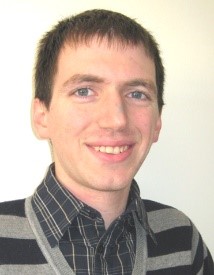Summer course: Parameter identification and self-commissioning techniques for AC motor drives (3 ECTS)
Introduction
The precise characterization of modern electric motor drives is a key requirement for many applications. Accurate motor identification is mandatory for validating the machine design, as well as for implementing model-based control schemes, such as model predictive control, advanced flux observers and position-sensorless control. This course describes the state of the art of testing procedures for the measurement of three-phase and multi-three-phase motor drive parameters. This includes accurate test campaigns in laboratory environments, as well as fast self-identification techniques known as self-commissioning, both for the motor and for the inverter characterization. The main contents of the course are:
- Modelling of motor drives: Basics of motor and inverter modelling adopted for defining the test campaign
- Magnetic model identification: Measurement of the self- and cross-saturation characteristics
- Thermal testing: Thermal model definition and experimental measurement of the related parameters, aiming at the full exploitation of the machine overload capability
- Inverter voltage error: Accurate techniques for the inverter characterization and voltage drop compensation
For each topic, the course will cover both motor design and control aspects.
Target audience
The course is designed for advanced master's students and doctoral students as well as for adult learners and experts from industry. Prior knowledge of motor drives modelling, power-electronics converters, and vector control principles is preferred.
Main contents
- Modeling of three-phase motor drives
- Accurate measurement of machine parameters
- Self-commissioning of the magnetic model
- Thermal parameters estimation and measurement
- Characterization of inverter voltage error
- Parameter estimation and measurement for sensorless control
- Observer-based online parameter estimation techniques
Learning outcomes
After the course, the attendee is able to:
- Select proper identification techniques based on the available hardware and the target application
- Evaluate the accuracy of the identified data and their effect on model-based control
- Implement basic identification and self-commissioning procedures
Course material
Lecture slides and computer assignment instructions will be provided during the classes. Selected scientific articles are also used in the preliminary assignment.
Requirements
To achieve the credits, you must satisfy the following requirements:
1) Preliminary assignment: Read the following papers before the course:
- E. Armando, R. I. Bojoi, P. Guglielmi, G. Pellegrino, and M. Pastorelli, "Experimental Identification of the magnetic model of synchronous machines," IEEE Trans. Ind. Appl., vol. 49, no. 5, Sep./Oct. 2013.
- M. Hinkkanen, P. Pescetto, E. Mölsä, S. E. Saarakkala, G. Pellegrino, and R. Bojoi, "Sensorless self-commissioning of synchronous reluctance motors at standstill without rotor locking," IEEE Trans. Ind. Appl., vol. 53, no. 3, pp. 2120-2129, May/Jun. 2017.
- S. A. Odhano, P. Pescetto, H. A. A. Awan, M. Hinkkanen, G. Pellegrino, and R. Bojoi, "Parameter identification and self-commissioning in AC motor drives: A technology status review," IEEE Trans. Power Electron., vol. 34, no. 4, pp. 3603-3614, Apr. 2019.
- A. Boglietti, E. Carpaneto, M. Cossale, and S. Vaschetto, "Stator-winding thermal models for short-time thermal transients: Definition and validation," IEEE Trans. Ind. Electron., vol. 63, no. 5, May 2016.
- N. Bedetti, S. Calligaro, and R. Petrella, "Self-commissioning of inverter dead-time compensation by multiple linear regression based on a physical model," IEEE Trans. Ind. Appl., vol. 51, no. 5, Sep./Oct. 2015.
- D. D. Reigosa, D. Fernandez, H. Yoshida, T. Kato, and F. Briz, "Permanent-magnet temperature estimation in PMSMs using pulsating high-frequency current injection," IEEE Trans. Ind. Appl., vol. 51, Jul./Aug. 2015.
Detailed knowledge of the papers is not required; focus on understanding the core content and prepare a brief question or a comment for each paper. For example, explain what was difficult to understand or what would you like to know more. Send your questions and comments to Paolo Pescetto no later than 18 August (paolo.pescetto@polito.it). The estimated student workload for this preliminary assignment is 20 hours.
2) Class participation: Students are expected to participate in classes (16 hours).
3) Assignments: Recap the material and complete the simulation assignments for an additional estimated workload of 40 hours, including recap. Submit your report latest on 30 September.
Language
The working language of the course is English.
Additional information
Participants are responsible for organizing and paying their own travel costs, accommodation, and food.
Date and Time
Location
Hosts
Registration
- Start time: 22 Aug 2023 06:00 AM UTC
- End time: 25 Aug 2023 10:00 AM UTC
-
 Add Event to Calendar
Add Event to Calendar
- Aalto University School of Electrical Engineering
- Konemiehentie 2
- Espoo, Sodra Finlands Lan
- Finland 02150
- Building: Computer Science
- Room Number: Auditorium T2 (C105)
- Click here for Map
- Contact Event Hosts
-
Instructor: Paolo Pescetto (paolo.pescetto@polito.it)
Organizer at Aalto University: Marko Hinkkanen (marko.hinkkanen@aalto.fi)
- Co-sponsored by Aalto University
- Starts 26 June 2023 10:00 AM UTC
- Ends 13 August 2023 01:15 PM UTC
- 3 in-person spaces left!
- No Admission Charge
Speakers
 Paolo Pescetto of Energy Department of Politecnico di Torino, Turin, Italy
Paolo Pescetto of Energy Department of Politecnico di Torino, Turin, Italy
Biography:
Paolo Pescetto is an Assistant Professor at Politecnico di Torino, Italy. He received the M.Sc. and PhD degrees with full grades and honors from Politecnico di Torino, Turin, Italy, in 2015 and 2019. Since fall 2019, he is working as a researcher and tenure-track lecturer in the Energy Department of Politecnico di Torino. He is a member of the Power Electronics Innovation Center (PEIC) of Politecnico di Torino. He authored or co-authored 35+ scientific works, with 14 IEEE journal papers. His main research interests include synchronous motor drives, sensorless control, self-commissioning techniques, and integrated battery chargers for EVs. Dr. Pescetto received five IEEE paper Awards and two IEEE PhD thesis award.
Email:
Address:Turin, Italy
Agenda
Preliminary schedule
Classes at 9:00–13:00 from Tuesday to Friday (Helsinki time). The classes include hands-on MATLAB exercises. It is recommended to bring your own laptop with you.
Location
Auditorium T2 (C105), Konemiehentie 2, Espoo.
